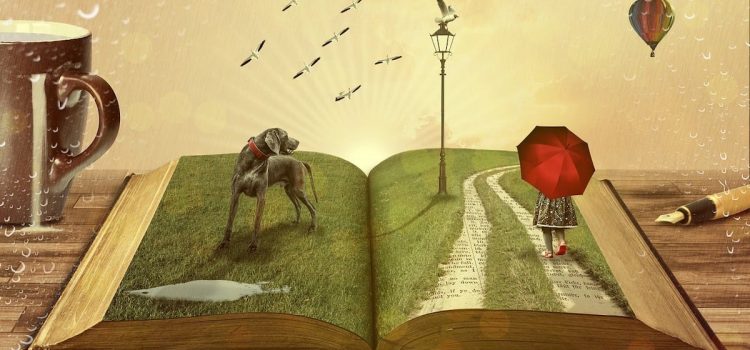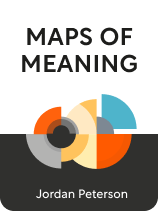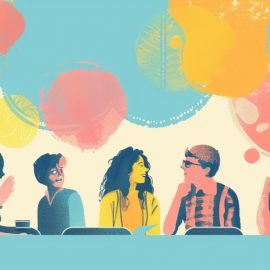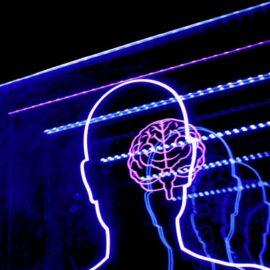

This article is an excerpt from the Shortform book guide to "Maps of Meaning" by Jordan Peterson. Shortform has the world's best summaries and analyses of books you should be reading.
Like this article? Sign up for a free trial here.
How do we create our very first stories? Are we born as blank slates, or is there a “collective unconscious” as psychologist Carl Jung suggested?
Jordan Peterson’s answer to these questions is “yes and no.” We’re born with the mental problem-solving process as part of how our brains biologically function, but we learn our first stories by watching our parents.
According to Jordan Peterson, stories help us figure out the world. Keep reading to learn how.
From Stories to Myths
For Jordan Peterson, stories are critical to the individual and societal experience. They’re codebreakers, in a sense. Stories get ingrained in us when we observe our parents. Through them, Peterson explains, we absorb our family’s rules—the left brain verbalized stories—without having to go through the right brain creative process.
For example, your mother says, “Don’t touch the stove,” instead of letting you burn yourself. Your father will tell you, “Don’t talk to strangers,” instead of letting you experience a potentially dangerous interaction. In either case, your parents may explain why, but the lesson is learned by abstraction—through story—instead of through painful experience. Our family and, later, society at large give us a basic storytelling toolkit for deciphering the big, scary world.
(Shortform note: The idea that childhood cognitive development is driven by social interaction was pioneered by Russian psychologist Lev Vygotsky, who proposed that while children are born with certain basic mental functions, the growth of those abilities into a working human mind is entirely dependent on guidance from family and culture. According to Vygotsky, language develops first as an external tool for a child to communicate with others. Only later does language become internalized for the purpose of encoding memory, rules, and stories.)
Thanks to our capacity for language, humans are great at communicating ideas. A group’s collective solutions to problems become encoded in a narrative passed between generations. New problems that arise mandate changes to the story, but a culture’s deepest understanding of the world becomes embedded into a foundational mythology that serves as that society’s code for right and wrong. And, because there are commonalities to all human experience—birth, life, change, and death—the oldest myths from all over the world share the same building blocks.
(Shortform note: Prior to Peterson, the idea that myths share common thematic elements across cultures was popularized by theologian Joseph Campbell in The Power of Myth. Campbell noted that societies fixate on the superficial differences between belief systems as a means to cement cultural identity and delineate who is and isn’t part of their group. However, Campbell notes that even specific details are shared cross-culturally, such as Jesus and Buddha both walking on water, or that the story of Noah’s flood is repeated verbatim in the Epic of Gilgamesh.)
Peterson is careful to distinguish between myths, which make room for the totality of human experience, and ideologies, which appropriate mythological concepts in support of a limited, toxic worldview. Ideologies are rooted in a sin of omission—they deliberately leave out the fundamental truth that everything in life has both a positive and negative aspect, as we shall see in the following section.
(Shortform note: The lure of a simple ideology is strong. In Factfulness, Hans Rosling lists several common fallacies that lead to the adoption of such beliefs. What he calls the Single Perspective Instinct is our drive to reduce problems down to their simplest essence. Ideologies appeal to this instinct by providing a false sense of clarity in a complex world. Closely related is our instinct to blame others, which lets us ignore our own negative contributions. While Rosling recommends an objective worldview as a solution to distorting ideologies, Peterson contends that a complete mythological system teaches us to accept the world’s full complexity.)

———End of Preview———
Like what you just read? Read the rest of the world's best book summary and analysis of Jordan Peterson's "Maps of Meaning" at Shortform.
Here's what you'll find in our full Maps of Meaning summary:
- Why myths are vital to how humans confront and make sense of a chaotic world
- How to apply the lessons of myth to live a more well-rounded life
- How the findings of neuroscience are echoed in the structure of our most ancient tales






